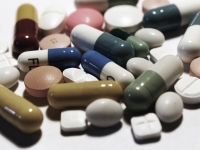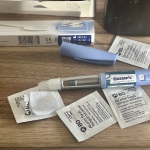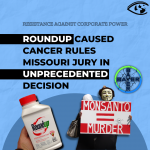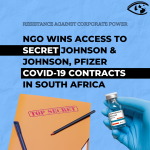Bayer CEO Says Drugs Developed For "Western Patients Who Can Afford It"

Bayer, the German pharmaceutical giant, is in hot water after CEO Marijn Dekkers told a Financial Times conference that the company designed medicines "for western patients who can afford it" not for the "Indian market." The company has been critical of the Indian governments efforts to make cheap generic drugs available locally.
(A video of Dekkers' remarks can be seen here, go to 18:30)
Bayer has been deeply critical of the March 2012 decision by the Indian Supreme Court to allow Natco Pharma, an Indian company, to sell sorafenib tosylate, a cancer drug for under $200 a month. The German company sells Nexavar, a branded version of the same drug, for over $8,000 a month, marked up ostensibly to cover costs for drug development. (India's average per capita monthly income is just under $100)
Dekkers' statement was roundly condemned by activists. "Drug companies claim to care about global health needs, but their track record says otherwise," said Dr Manica Balasegaram, executive director of the access campaign of Médecins Sans Frontières (Doctors Without Borders). "Pharmaceutical companies are singularly focused on profit and so aggressively push for patents and high drug prices."
In the U.S. companies are issued 20 year patents, after which the drug becomes available for anyone to make. India long refused to recognize international patents on essential drugs in order to keep prices affordable, but changed its laws to accept patents, as part of an agreement to join the World Trade Organization in 2005.
However the Indian government has reserved the right, under WTO rules, to create compulsory licenses for drugs for public health reasons, that only provide the patent holder with nominal royalty payments. The sorafenib license was the first to be issued under the rules. Since then India's health ministry has recommended issuing licenses for three other drugs - Trastuzumab, Lxabepilone and Dasatinib - that were developed and marketed by Roche and Bristol-Myers Squibb.
Other drugs that are under consideration for compulsory licensing, according to Bloomberg Businessweek, include two diabetes drugs, Merck's sitagliptin medication, Januvia, and Bristol-Myers' saxagliptin drug called Onglyza; Merck's HIV drug raltegravir, sold under the brand name Isentress; and Bristol-Myers' arthritis drug abatacept, sold as Orencia.
Ironically, Dekker's comments served to prove an argument made by public health activists for many years. "At a time when Pharma's reputation is suffering, Dekkers' comment does not help matters," wrote John La Mattina, former president of Pfizer,s global research and development. "Rather, it reinforces the notion that Big Pharma is only interested in profits and those in need are out of luck when it comes to life saving medicines."
The Pharmaceutical Research and Manufacturers of America's claims that the high costs of branded drugs are justified by the cost of developing new drugs, which industry says average $800 million per drug. But Kalyani Menon-Sen, the coordinator of the Campaign for Affordable Trastuzumab, says that the companies actually make "several thousand" times the cost of their original research.
"It doesn't have to be this way," adds Balasegaram. "Medical innovation can be incentivized differently, and research paid for in ways that deliver drugs but without high prices that exclude millions of people from access."
Ironically many major pharmaceutical companies take advantage of cheap labor in India to help them boost their profits. "India took (China's) place as the world's pharmacy, and in recent decades has been the largest provider of cheap, lifesaving medicines in poor countries across the globe," write Vikas Bajaj and Andrew Pollack in the New York Times. Indeed Doctors Without Borders estimates that 80 percent of the generic AIDS drugs that it distributes to 170,000 patients in Africa are made in India.
- 116 Human Rights



